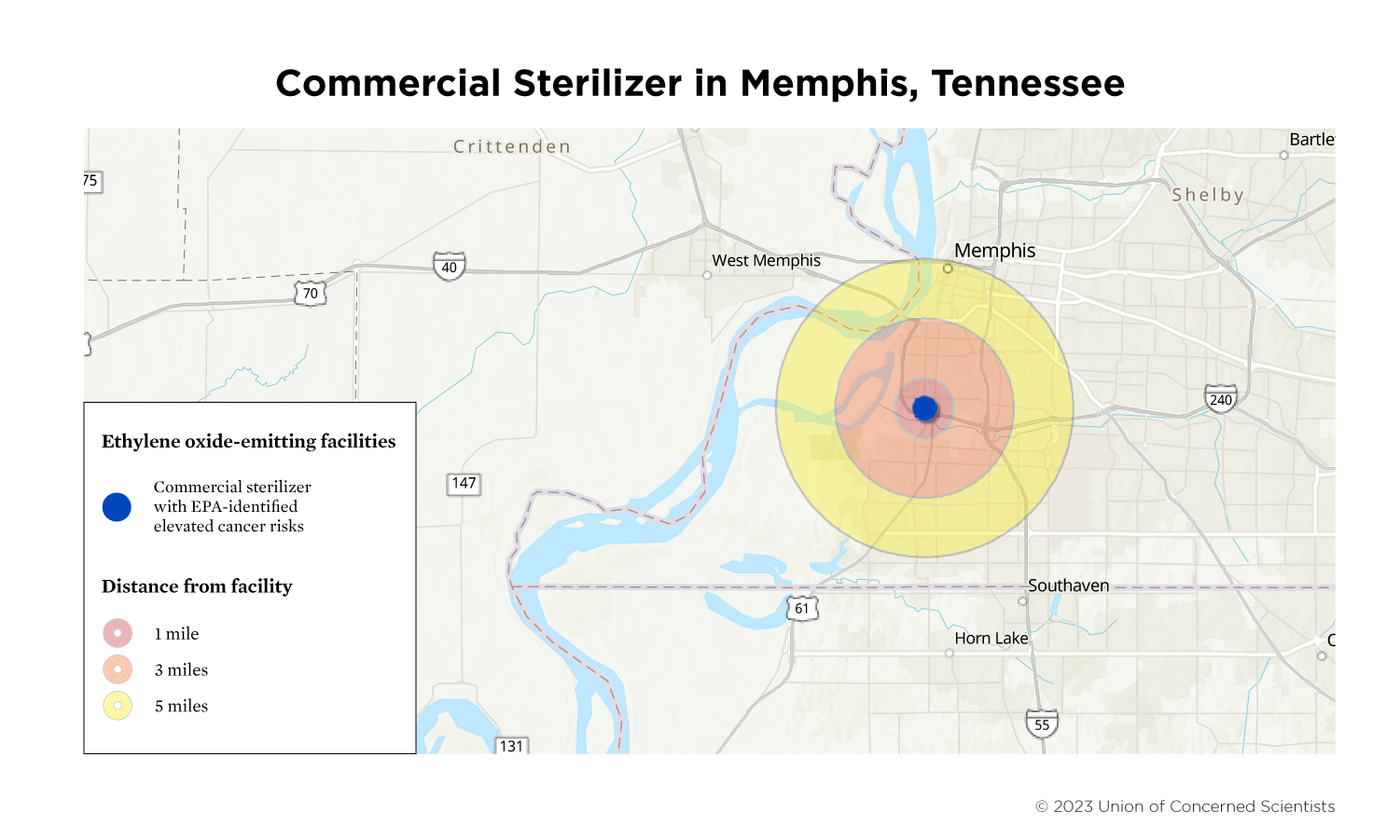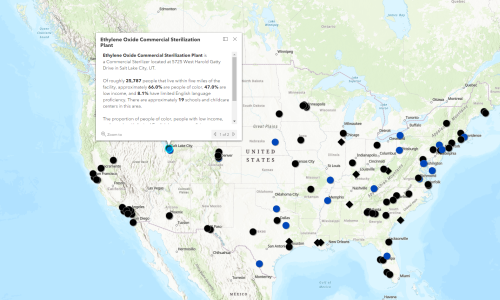Tennessee has two commercial sterilizers, Sterilization Services of Tennessee in Memphis and DeRoyal Industries/Royal Sterilization in New Tazewell. Nearly 141,000 Tennesseans (roughly 2 percent of the state population) live within five miles of them (US Census Bureau 2020). Both sterilize medical equipment. The EPA has identified both as contributing to elevated cancer risks (see Sterilization Services of Tennessee and DeRoyal Industries), with maximum excess cancer risk levels of 2,000 additional cases per 1 million people for Sterilization Services and 3,000 cases per 1 million people for DeRoyal (EPA 2022m; EPA 2022n). In 2021, the facilities reported 1,490 and 1,650 pounds of EtO releases and transfers, respectively.
The Sterilization Services facility, located in South Memphis, is within five miles of more than 130,000 people and approximately 180 schools and childcare centers. This is a predominantly Black community, where the proportion of people of color and people with low income within five miles of the facility are 87 percent and 57 percent, respectively—both 20 percent greater than the county average. The estimated air toxics cancer risk in the census tract with the Sterilization Services facility is 200 additional cases per 1 million people; EtO emissions contribute to nearly 82 percent of the overall cancer risk in this tract (AirToxScreen 2022). The EPA found this facility to be in noncompliance with the Clean Air Act in one of the last 12 quarters, and it has been subject to two formal enforcement actions in the last five years, paying nearly $10,000 in penalties. Organizers from Memphis Community Against Pollution have been pushing federal and local officials to hold the facility accountable and protect public health (MCAP, n.d.).

